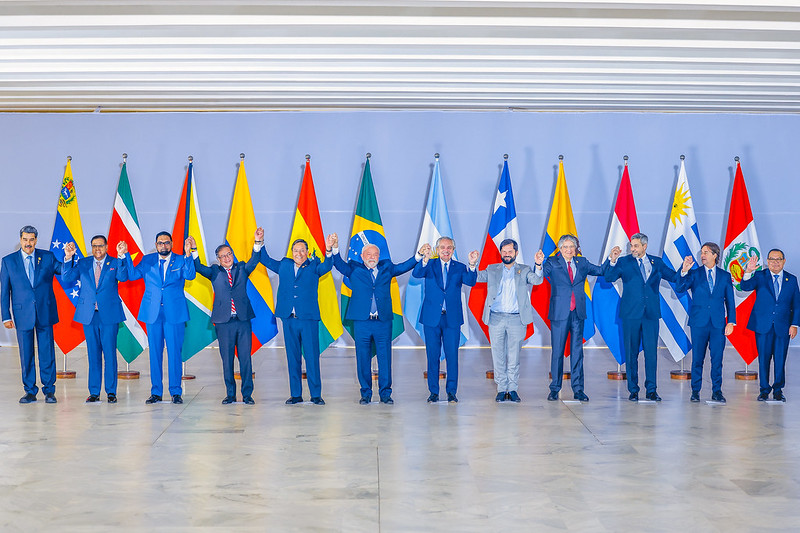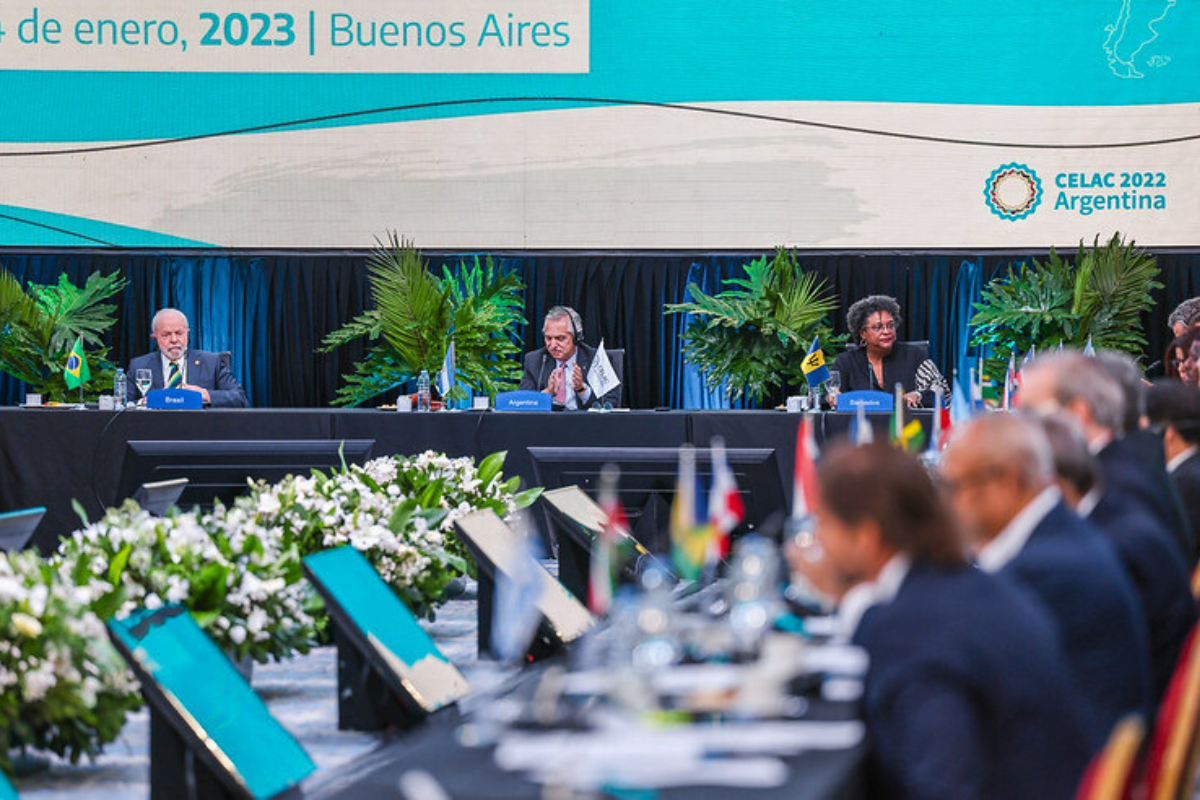President Luiz Inácio Lula da Silva may have hoped to revive the spirit of continental cooperation at his Brasília summit, which gathered the heads of South America’s 12 nations. But between his controversial full-throated defense of Venezuelan President Nicolás Maduro and the troubles at home plaguing most of the leaders in attendance, deepening integration appeared to be an afterthought.
Even progress on this front, such as Colombia’s decision to rejoin the Unasur bloc, was largely received as a hollow victory.
“Goodbye UNASUR, hello ANSUR?” quipped Argentinian political scientist Bruno Binetti following Colombian President Gustavo Petro’s announcement that he would be petitioning to change the bloc’s name. “Now we really fix South America.”
Meaningless name changes aside, the problem was clear, to many both in Brasília and abroad: working together today remains largely dependent upon ideological affinities between leaders and governments. The result has been a mosaic of international organizations, with memberships fluctuating throughout electoral seasons and regional crises.
“Enough institutions,” Uruguayan President Luis Lacalle Pou said during the summit. The center-right leader withdrew his country from Unasur upon taking office in March 2020 but also refused to join the newer alternative Prosur bloc promoted by regional conservative governments since the late 2010s.
His exasperation with Latin America’s ideological polarization has been echoed in recent international gatherings by some of his peers. Meanwhile, Uruguay reportedly rejected multiple drafts of the summit statement emerging from Brasília.
This ideological barrier is no doubt holding back the important international work that needs to be done. Even setting aside non-leftist governments, there are ripples in the continent’s so-called ‘pink tide’ today.
Chilean President Gabriel Boric is a frequent critic of Mr. Maduro and his defenders. Lula and Mr. Petro disagree on the role of oil in their economies. Argentina’s ruling Peronists seem set to lose to some variation of the right wing later this year, which would mean the loss of Lula’s closest foreign ally.

But the more fundamental barrier to...


 Search
Search






































